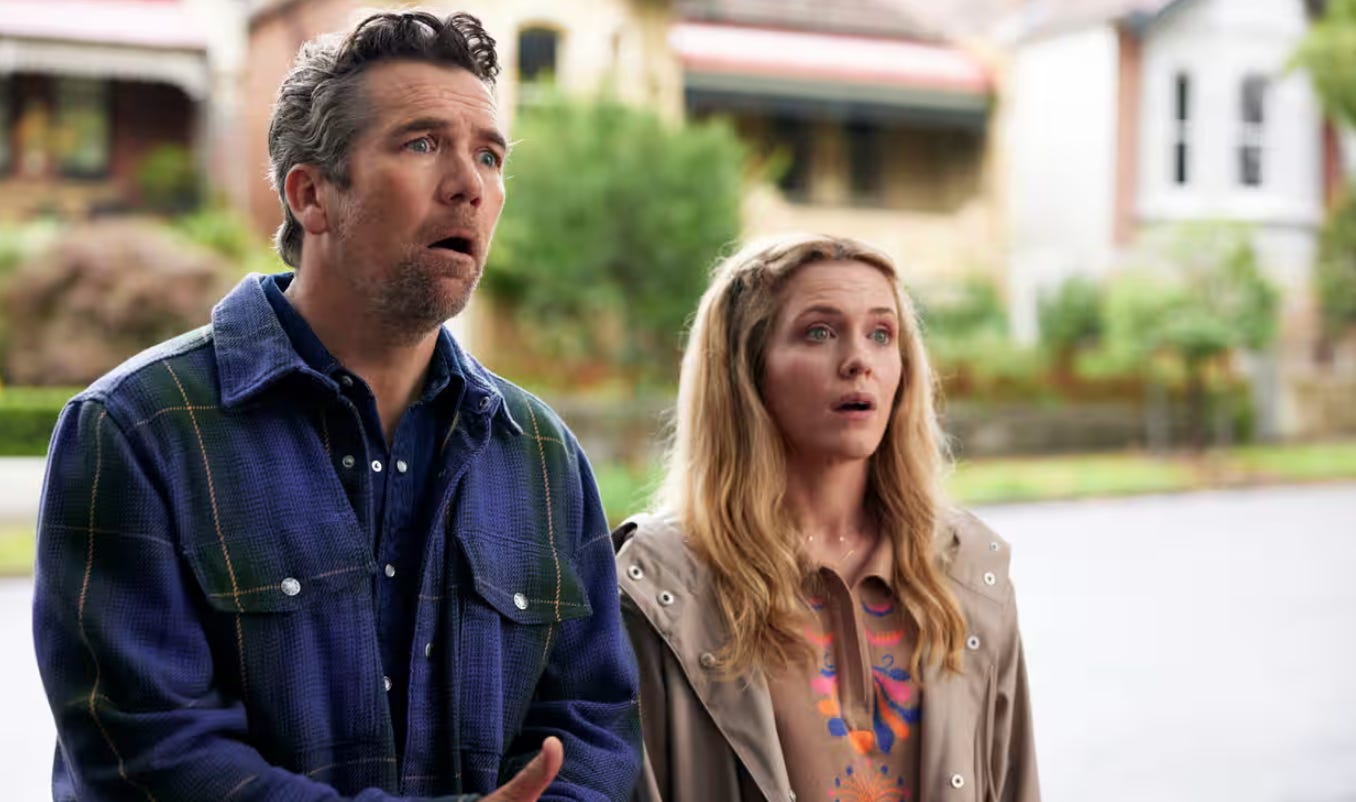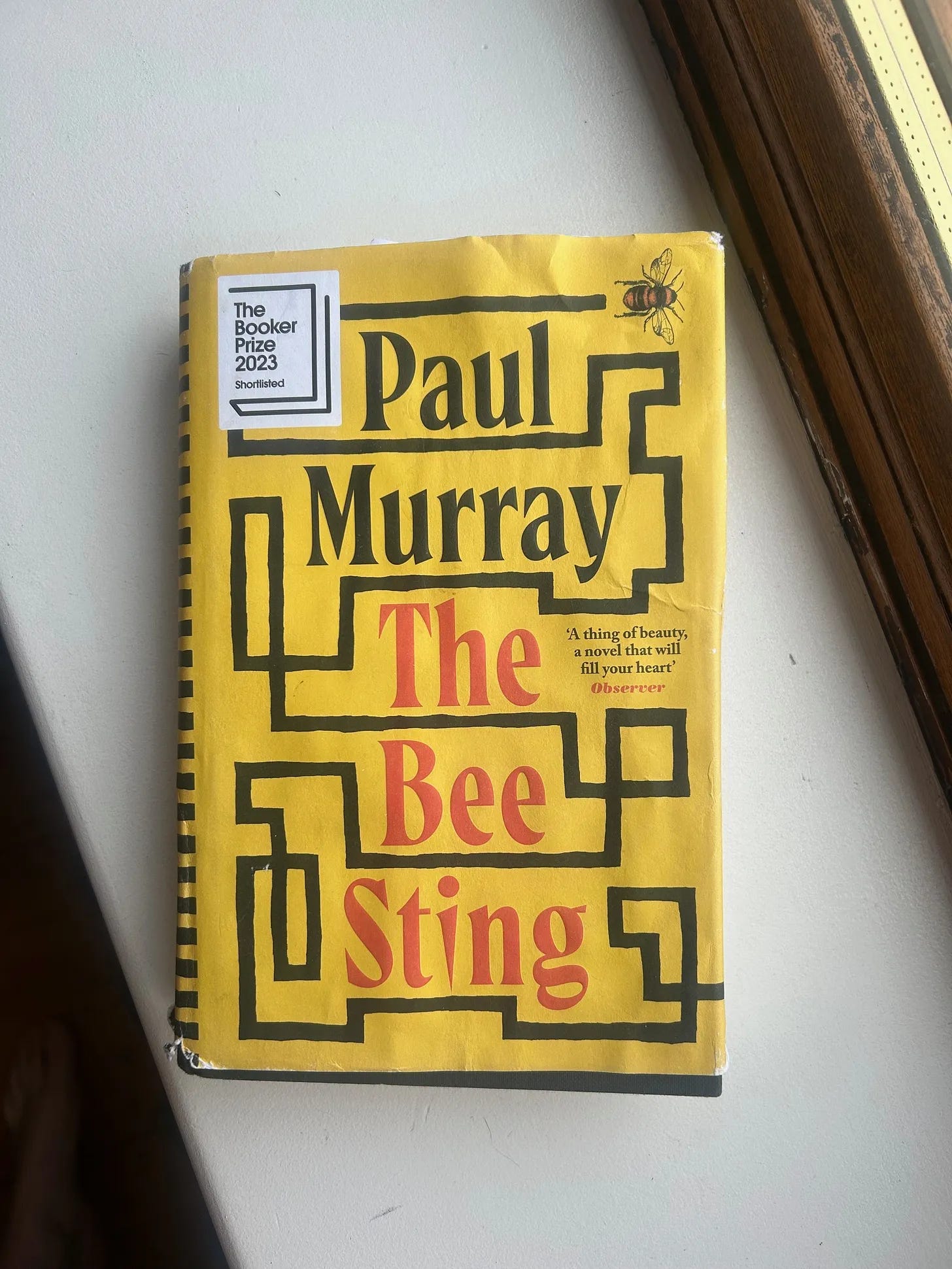The best books, podcasts, film and TV I gobbled up this year
'Tis the season for unsolicited cultural recommendations, and so to force me to put down the chocolates for five minutes, here are mine
Today is the official due date of our baby daughter, who for now is still content resting in her cosy amniotic cave, occasionally waking up to perform a cossack dance in her mum’s belly. The hospital bags are packed and by the door. The freezer is full of batch-cooked soups and curries. And we are twiddling our thumbs, simultaneously impatient and excited and quietly grateful for one (two? Three? Six?) last day of quiet before a new life of loving chaos begins.
As such, thoughts have drifted to what books, podcast, TV and such we liked in 2024. In truth, the vast majority of my cultural consumption this year has fallen into the categories of psychology, philosophy and ‘stuff about anger’ as I finished writing my book. But there has been time for some lighter stuff in around that too which I thought I’d share, given A) ‘tis the season and B) if I spend one more day eating Heroes and playing video games while fretting about getting to the maternity ward, I’ll go insane. So here goes.
Colin From Accounts (TV)
Season two of this romantic comedy, about a craft beer seller and a trainee doctor who fall in love after they accidentally (almost) kill a dog together, came out on BBC iplayer this year. It’s been ages since I’ve seen a TV comedy with an original tone – by which I basically mean not something irritatingly derivative of The Office – and Harriet Dyer in particular brings a real depth to its many laugh out loud moments. I like that it’s an Australian show that isn’t Neighbours or Survivor (no slight on either), and the fact Dyer and co-lead Patrick Brammall wrote the show and are married in real life, which lends their onscreen bickering / affections an interesting subtext. Basically if you liked Catastrophe you’ll love this.
Demon Copperhead (fiction)
It came out in 2022, but Barbara Kingsolver’s Pulitzer Prize-winning novel about drug addiction and poverty in Appalachia gained fresh resonance this year as JD Vance oozed his way to the vice presidency. Hillbilly Elegy, Vance’s 2016 memoir of growing up in the same region, had been criticised by Kingsolver and others for its shallow depictions of America’s working class and for appearing to blame addicts for their own fates; by contrast, Demon Copperhead paints a empathetic, nuanced and even joyful picture of life at the sharp end of the country’s opioid crisis. Weirdly, Kingsolver places this work of social realism within a retelling of Charles Dickens’ David Copperfield, which makes the plot feel inescapably and somewhat jarringly contrived in places. Still, at the level of sentence and character it was the best thing I read all year.
The Bee Sting (fiction)
Another big, chunky, modern novel I leapt into gleefully, I’ve written elsewhere on this blog about why The Bee Sting by Paul Murray was so great (and the wise things it had to say about anger). It’s a multiperspective account of the unravelling of a wealthy Irish family in the wake of the 2008 financial crash with lots of stellar scenes and clever things to say about what Philip Larkin called ‘the coastal shelf’: how parents and families pass their faults and traumas onto the next generation, drawing the battle lines of their inner lives before they’ve even had a say in the matter. OK this one technically didn’t come out this year either, but the buzz around it definitely caught on in 2024.
This Jungian Life (podcast)
I’ve read a lot of Carl Jung this year, mainly because ideas of his like the shadow self – that hidden aspects of our personalities follow us around and burst forth in unexpected ways until acknowledged – informs a particular chapter of my book. He was also a proponent of dreamwork, archetypes and other fun concepts in psychology that make for fascinating conversations. This Jungian Life features three of his devoted followers – Deborah C. Stewart, Lisa Marchniano and the impeccably-voiced Joseph R. Lee – as they apply Jung’s teaching to various aspects of modern existence and analyse a listener’s dream each episode. There’s a soothing, borderline ASMR-like quality to their discussions I love, and there’s always a nugget or two of surprising insight to take away from an episode.
Cement City (podcast)
Jeanne Marie Laskas has been my journalism hero since I read Hidden America, a book in which she embeds herself with people performing unseen but essential jobs across the US – coal miners, air traffic controllers, long-haul truckers – and tells their tales. There is something so refreshingly antithetical to the times about how she simply reports, without feeling the need to bring her stories back to insights about herself or her life. I am yet to do this myself, yet yearn to all the time. Anyway: Cement City is a podcast about Laskas and her friend deciding to explore a small, forgotten, rundown town in Pennsylvania, which she does with exactly the same unpretentious, agenda-free curiosity. I won’t spoil what she uncovers, but like the best human interest journalism it’s a reminder there’s no such thing as an ordinary place or an ordinary life.
All the Rage (non fiction)
When I heard another book offering a alternative take on anger was coming out – and eight months before mine – I was naturally enraged, distraught and deeply bitter. But sometimes you just have to hold your hand up and then use them for applause: Josh Cohen’s analysis of the emotion that has been my obsession for the past few years is as good as anything I’ve read on it. While my book, Good Anger, is a personal account of the restorative, energising pleasures of rage, Cohen applies a professional eye (“Any psychoanalyst’s consulting room is a crucible of anger” he writes) to how our misapprehensions and fears around anger have shaped our current political and social moment. Just remember you’re allowed to buy more than one book on the same thing.
American Fiction (film)
Out in the UK back in Feb, American Fiction is such a clever, original, quietly magnificent film I’m not remotely surprised no one here seemed to watch it. It follows a misanthropic university professor called Thelonious "Monk" Ellison (Jeffrey Wright) who despairs of the fact his serious literary novels are pigeonholed as ‘Black’ fiction just because he is African-American. In a fit of pique, he writes a trashy novel about drugs and gang violence meant to satirise racial stereotypes called My Pafology and publishes it under a pseudonym. To his horror, it becomes the literary sensation of the year. I took deep pleasure in how mercilessly and accurately American Fiction lampoons the cynical virtue-signalling of the publishing industry, but actually, it was the touching family drama about love and grief Trojan-horsed into the comedy that stayed with me to make this my favourite cinema trip of the year.
OK I think that’s it. Just be grateful I didn’t inflict upon you the horrors of my Spotify Wrapped.
Good Anger, a book about how anger can enhance our lives, is out 5 June 2025 and can be pre-ordered here.








100% agree on Demon Copperhead; the central protagonist is at once dysfunctional, resilient, and sympathetic, which is a difficult feat to pull off, but Kingsolver does it so well. It’s my favorite novel of all time. I haven’t read The Bee Sting but I’ll have to check it out. As for American Fiction, I similarly enjoyed the lampooning of shallow, performative wokeness and the protagonist’s struggle for acceptance on his own merits, separate from his racial identity. However, the ambiguous ending somewhat birthed me.